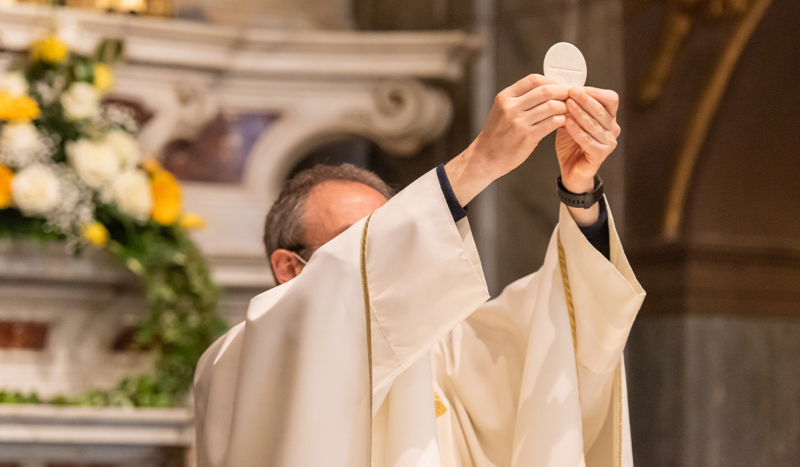
CV NEWS FEED // Against the backdrop of the ongoing National Eucharistic Revival, Vinea Research has released a new study indicating that previous research vastly underestimated the number of Catholics who believe Jesus Christ is truly present in the Eucharist.
In 2019, Pew Research reported that just one-third of Catholics believed in the True Presence of Jesus Christ in the Eucharist. However, Vinea Research stated in a press release this month that it decided to conduct a follow-up survey after positing that Pew’s survey questions did not accurately reflect how Catholics understand the Eucharist.
Using language that is “more commonly understood by Catholics,” Vinea Research discovered that 69% of regular Mass-going Catholics believe in the Real Presence of Jesus Christ in the Eucharist.
In an exclusive interview with CatholicVote, Vinea Research Founder and President Hans Plate explained how Pew Research failed to produce accurate data on the topic of Catholic belief in the Eucharist.
For context, Pew Research asked respondents to indicate whether they 1.) believe that the bread and wine are symbols or 2.) believe that the bread and wine actually become the body and blood of Jesus.
“There were two main problems we saw with their question framing,” Plate stated. “The first is that ‘actually becomes’ is not language that the Church uses or that Catholics would be familiar with.” The question, Plate added, should have referenced “true presence” or “real presence.”
He continued:
The second problem is that two response options provided – “actually become the body and blood of Jesus Christ” and “are symbols of the body and blood of Jesus Christ” – are not necessarily mutually exclusive. The bread and wine are symbols, but they are much more than that.
“The language in that survey felt foreign to me,” Plate said. “As a long-time practicing and devout Catholic, it just felt ‘off’ overall.”
Plate also shared additional research findings that weren’t published in the report. According to Plate, 73% of Mass-going Catholics expressed belief that the Church teaches that Jesus is present in the bread and wine. Out of these respondents, Plate noted, 12% said they personally believe the bread and wine to be symbols.
Of the total 22% who believe the bread and wine are symbols, Plate stated, 5% said they were not sure of what the Church teaches.
“What this tells me is that those who believe it is a symbol are not rejecting Church teaching,” Plate reflected. “They are, rather, misinformed or poorly catechized, which is why initiatives like the Eucharistic Congress and Revival are so vital.”
“That seems to me to be a reasonable hypothesis,” he concluded, “and one that could be explored in future Eucharistic-centered research.”

